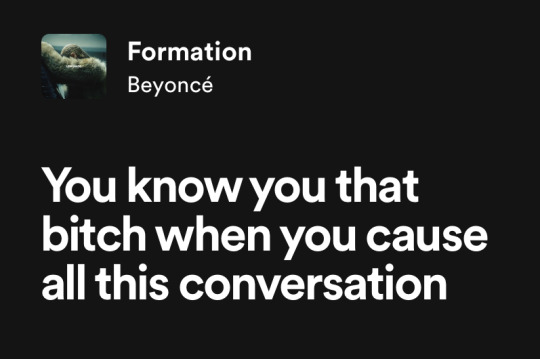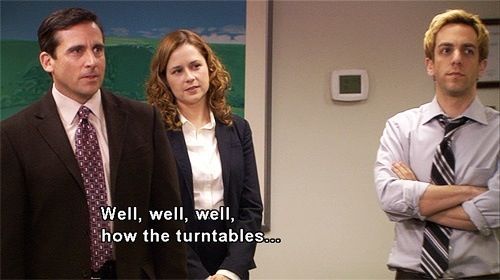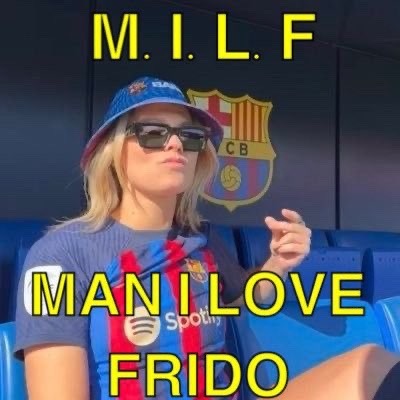Text
cadbury creme eggs are laced with crack cocaine
0 notes
Text
she’s the love of my life
2 notes
·
View notes
Text
can’t wait to scream morata’s name (for better or worse) during the euros
2 notes
·
View notes
Text
crazy how their youngster scores one (1) goal and their first instinct is to talk about pedri

10 notes
·
View notes
Text
me @ myself when madridistas piss me off: don’t write an essay don’t write an essay don’t write an essay
also me: Just hundreds of miles away from the action of World War II laid isolationist Spain, which delved into its own fascist period after the Spanish Civil War, lasting nearly 40 years and irreversibly changing the name and face of football in the country. The Spanish Civil War lasted between 1936 and 1939 and served as a sort of trial run of the Second World War, as Hitler provided supplies and men to Francisco Franco’s Falangist party who defeated the Republicans, instating an unforgettable authoritarian reign for nearly half a century (Mehrotra, 2014). The hub of Republican resistance to fascism was in Catalonia, especially in the capital city of Barcelona. With the win of the nationalists, the sport of football, which was the heart and soul of many Spaniards, quickly began to change to fit the principles of the regime. Many institutions, including football clubs, were required to change their name to Spanish: for example, the Catalan “Futbol Club Barcelona” became “Club de Fútbol Barcelona” (Ballout, 2015). The club suffered immensely during the war, from their club president, Josep Sunyol, being murdered because he accidentally shouted “Viva la República” and waved a Catalonian flag in a Nationalist area (Mehrotra, 2014), to half of the team fleeing the club and seeking refuge in Mexico and France during a summer tour, to the club’s offices being bombarded during an aerial raid of the city which killed over 3,000 people in total (Rainbow, 2012). Franco then deliberately bolstered his support for Barcelona’s biggest rival, Real Madrid, which then became the image of Spain projected across the world instead of the actual atrocities of the fascist state. Real Madrid serving as a distraction of Spanish politics to the rest of the world paid off to some extent, namely when the United States was allowed to build army bases on Spanish territory (Rainbow, 2012). There is no better example of the complete dominance that Franco had over football in Spain than the semi-finals of a tournament called the Generalísimo’s Cup in 1943, named after the dictator himself. Barcelona had won the first semifinal game 3-0 at home, and for the second game in Madrid, the Director of State Security visited the team in the locker room and is reported to have told the players, “Do not forget that some of you are only playing because of the generosity of the regime that has forgiven you for your lack of patriotism,” and the Barcelona players pointedly showed their understanding of this visit by losing that game 11-1 (Schlewitz, 2015). This displayed the harsh reality of the regime and how a single game could hold such severe consequences: if Barcelona had played to their full potential and won, they would have been castigated heavily and perhaps even killed. Furthermore, fans of Barcelona were not allowed to take Catalan flags inside the Madrid stadium, because in doing so, they would be arrested immediately (Mehrotra, 2014). In Catalonia and Basque Country, a smaller region similarly hated by Franco due to its prevalent republicanism, regional anthems and languages were banned; no one was allowed to speak Catalan or Basque anywhere, only Spanish (Rainbow, 2012). The only place where the residents of these areas had true freedom of expression was on the football grounds, and hence their clubs, however marginalized under the regime, turned into political symbols of hope in their struggle against Franco and his nationalist values. The fascist regime ended in 1975 with the death of Franco, and Spain soon thereafter became a constitutional monarchy again. Spanish football was undoubtedly affected by Falangist Franco taking over, and Real Madrid became the pinnacle of success by perfecting the image of Spain around the world while regional teams like Barcelona suffered tremendously at the hands of the dictatorship.
506 notes
·
View notes
Text
FABRIZIO SAID XAVI IS STAYINGGGGGG EVERYBODY CHEERED THE DELULU HAS BECOME TRULULU GUYS
120 notes
·
View notes




